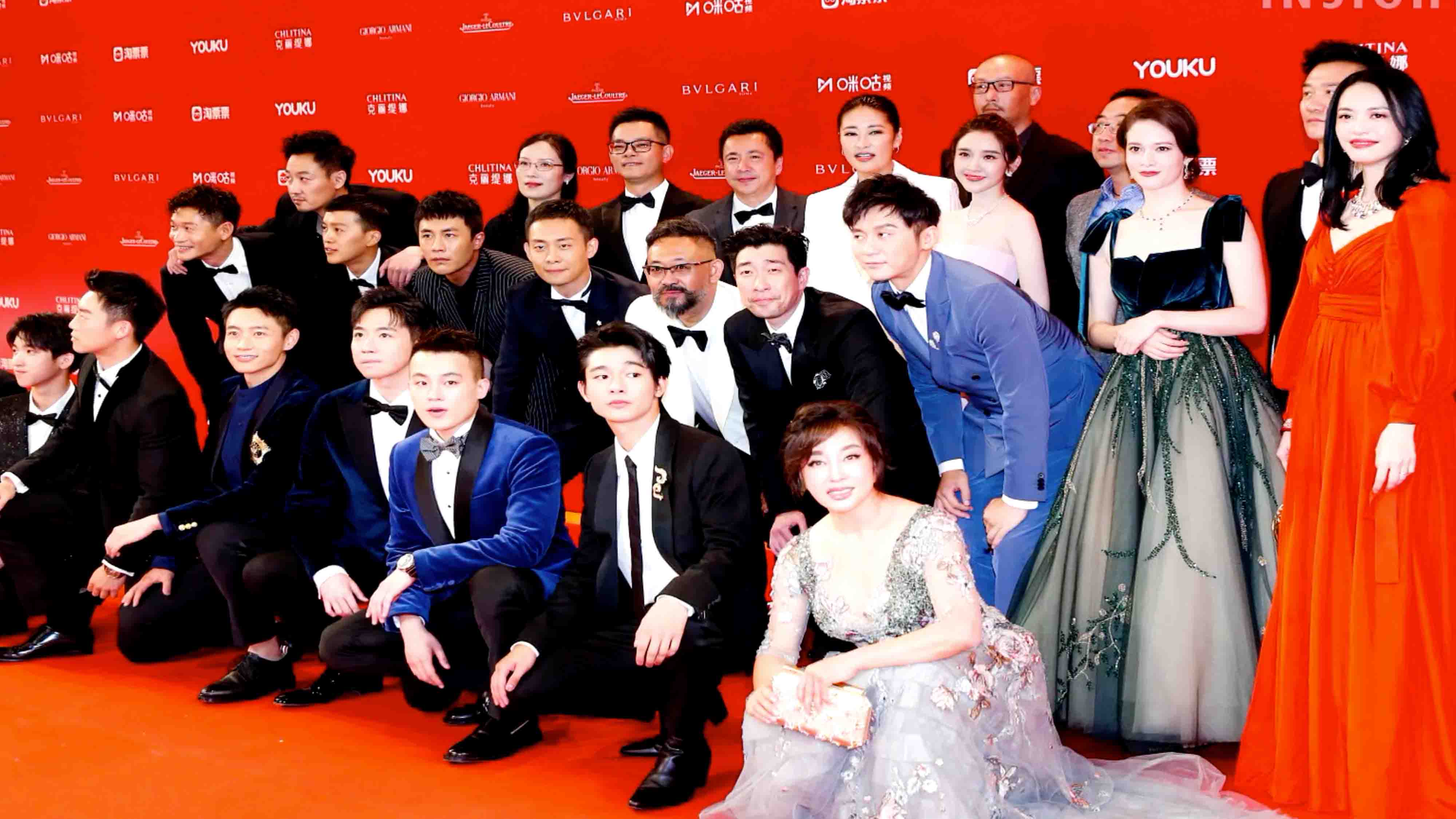01:45

A war epic about a battered Chinese army platoon's heroic last stand against invading Japanese forces in 1930s' Shanghai has smashed China's box office records since the epidemic outbreak.
CGTN host Tian Wei sat down with Wang Zhonglei, the co-founder and CEO of the film's studio Huayi Brothers Media, and a group of Chinese filmmakers, on the stories behind the film and how the box office miracle happened.
The movie The Eight Hundred, which raked 188 million U.S. dollars as of Wednesday, sparked hopes that China's hard-hit cinema industry is ready for a comeback.
Releasing the film at the rocky reopening of cinemas in China was a risky move. But for the Huayi Brothers, the 463-day wait was finally over.
The success of The Eight Hundred has not only breathed life back into the movie industry, but also retold a piece of history which deserves not to be forgotten.
"Our team conducted street surveys at the site of the bullet-riddled Si Hang warehouse, a structure still standing in Shanghai. It turned out that over 90 percent of the Interviewee knew little about the Battle of Songhu and the story behind this warehouse," Wang said.
When survival, patriotism, courage and triumph in the face of imminent defeat are projected onto the big screen amid an epidemic, the audience finds it easy to root for the underdog. "It shows the national spirit of rising up to difficulties, and inspires personal choices in the face of unknowns and uncertainties," he added.
Characters in The Eight Hundred are forced to make hard choices and forge their own codes of morality: Army deserters are torn between fleeing or alerting comrades of danger, and civilians have to choose between bringing aid or staying away.
On October 25, 1937, Shanghai fell to the invading Japanese forces after nearly three months of staunch resistance.
An unlikely band of soldiers known as "The Eight Hundred Heroes" held their ground against waves of fierce Japanese attacks for four days at Shanghai's Si Hang warehouse built by the Suzhou River.
The incident boosted national morale, rallying international support at the upcoming Brussels Conference.
04:06

Teng Jimeng, a freelance cultural commentator, pointed out that the film's director Guan Hu, among many sixth generation directors in China, tend to focus more on the social realities.
Bouncing back on the silver screen with a mainstream blockbuster has some special meaning to other sixth generation filmmakers. "This film centers around national salvation and national revolution. It has s special meaning to some sixth generation directors back in 1990s and the current generation.”
Will The Eight Hundred bring the broader film industry back to life in China? It might be too early to tell, but reopening with a blockbuster helps big time. The film has broken new ground as pandemic-era global theatrical top-grosser, and Asia's first film shot entirely with IMAX cameras, giving a huge boost to the Chinese film industry.
Ben Ji, a former Chinese executive at Warner Brothers and Disney, said, "The movie-going experience, the all-star cast, visual effects and screenplay of this film can never be replaced by watching drama at home. These will be enough to pull the audiences back to movie theaters.
World Insight with Tian Wei is an international platform for debate and intelligent discussion. It is the meeting point of both the highly influential and rising voices, facilitated by host Tian Wei. It provides nutrition to form your own thoughts and ideas through a 45-minute live debate and interviews.
Schedule: Monday-Saturday
Time (GMT): 1415, 2015
(If you want to contribute and have specific expertise, please contact us at opinions@cgtn.com.)